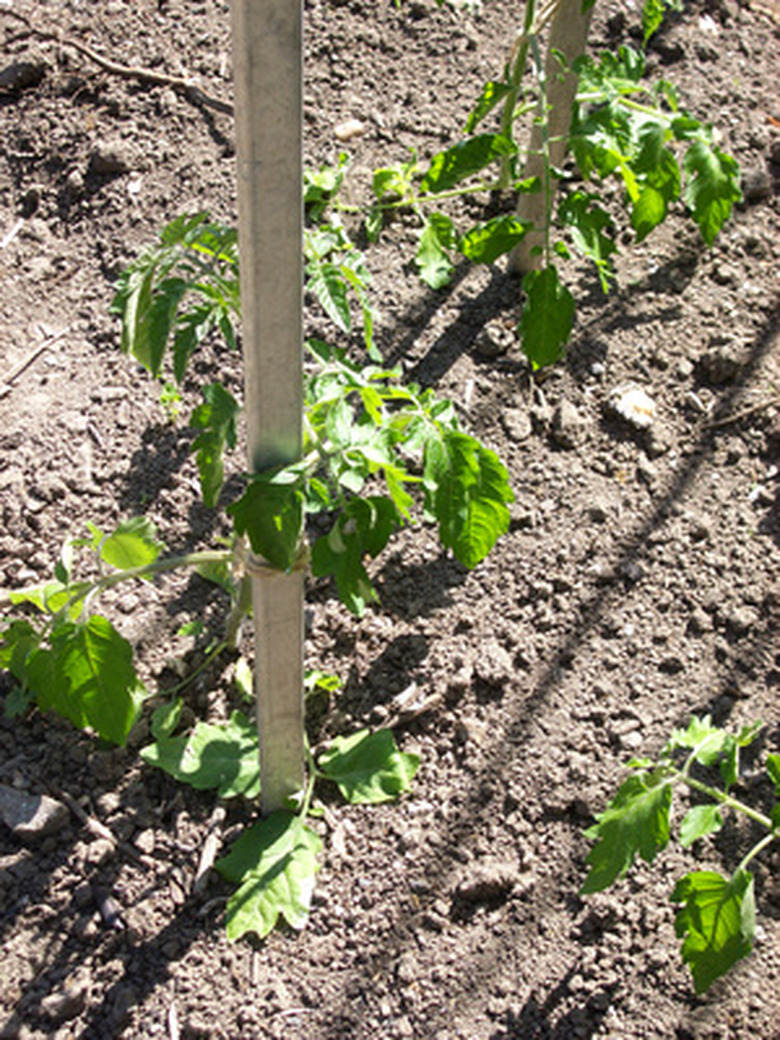How To Water Bean Plants
As a gardener tends pole or bush beans in a garden, he must stay constantly vigilant to ensure his beans receive the proper amount of moisture for a successful bean harvest. If beans receive too little water or too much water, the blossoms may not form properly on the vines and the bean pods may not mature for harvesting. Water bean plants carefully throughout the growing season and you will have a bountiful bean harvest.
Step 1
Set up the rain gauge in an area near the bean plants to monitor weekly rain amounts. If less than 1 inch of rain falls within a one-week-period, expect to water the bean plants.
Step 2
Assess the bean plants every day or every other day to determine if they require water. Insert your finger into the soil around the plants. If the top inch of soil is dry, provide water for the bean plants.
- As a gardener tends pole or bush beans in a garden, he must stay constantly vigilant to ensure his beans receive the proper amount of moisture for a successful bean harvest.
- Set up the rain gauge in an area near the bean plants to monitor weekly rain amounts.
Step 3
Water bean plants during the early morning hours for best results. This will allow any moisture that collects on the bean plant foliage to evaporate in the sunshine throughout the day. If you water in the evening and the bean plants go through the overnight hours wet, they may develop fungal infections.
Step 4
Direct water to the soil with the garden hose or the watering can to give the bean plants water. Avoid splashing water onto the leaves and foliage of the bean plants as you water. Water the bean plants until you saturate the soil completely, but do not create puddles in the soil.
Bean Plants Be Watered?
Large, fresh green beans (Phaseolus vulgaris) are full of necessary nutrients, from carbohydrates to potassium. Creating the bean pod takes photosynthesis energy along with a generous water supply; plants use approximately 1/2 inch of water each day during the blossom and pod growth period. Water while the sun is out to reduce water spots on the foliage. The soil itself should not be hard and compacted. Your bean plant should respond with a dark green color when it has ample water supplies; inadequate soil and water levels will cause the blooms to fall. You do not want to guide your watering habits by letting the plant get to this point. Insert your finger into the surrounding soil for the best indication of water levels. Effective watering techniques bring moisture directly to the roots. Hand watering or drip irrigation lines work well to water bean plants.
- Water bean plants during the early morning hours for best results.
- Direct water to the soil with the garden hose or the watering can to give the bean plants water.
Things Needed
- Rain gauge
- Garden hose or watering can
